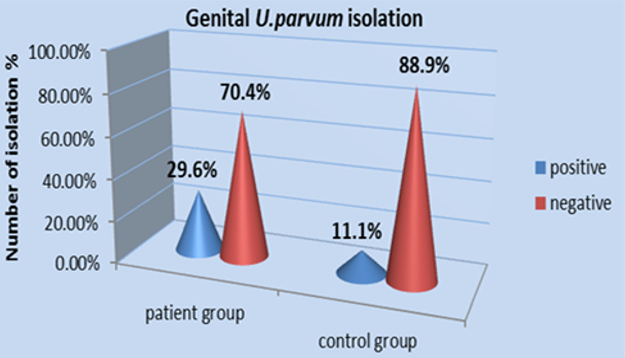Abstract
One hundred Seventyample were collected, including vaginal bleeding, vaginal swabs and urine. One hundred and thirty samples of women were collected with repeated miscarriage and forty samples of control. Two types of media (middle IH broth) and IH agar medium were used. A positive isolate of Mirablasma spp. In culture, the PCR probe was investigated to determine Ureaplasma parapum and subtyping to (SV1, SV3, SV6, SV14). Results showed that Ureaplasma was determined in 29.6% of the patient and 11% of control. The serovar3 isolate were isolated by the use of the PCR test, and results revealed that serovar3 was more isolated in the rate (42.8%), while serovar1 (28.5%), serovar6 (14.2%) and serovar14 (14.2%) in the patient but only serovar1 control was isolated at rate (11%). The findings suggest that the Ureaplasma parvum infection may be an important archaeological factor for repeated miscarriage and serovar3 was the most frequent serovar detected in the current study.
Full text article
Authors

This work is licensed under a Creative Commons Attribution-NonCommercial-NoDerivatives 4.0 International License.

